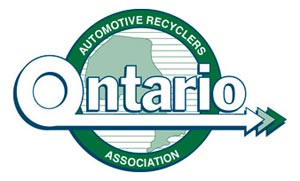n
n
- n
- The management, delivery, and quality control of recycled parts;
- A declining percentage of recycled parts utilization in the collision repair process;
- The acquisition of salvage vehicles for parts disassembly;
- The proliferation of illegitimate operations and salvage brokering; and,
- Enforcement of environmental standards, legislation, policies, and the inadequate application of performance standards.
n
n
n
n
n
nRecyclers throughout Canada and the U.S. face similar challenges, and each individual region and regional association are responding in different ways. B.C. is unique in that the majority of collision repairs in the province are administered through the government crown corporation, ICBC. ICBC administers 100% of all basic auto insurance, and 85% of all optional auto insurance coverage in the province. ICBC is also unique in that they own and operate their own salvage auctions, and thus, sell and control the majority of salvage sales in the province.nnThe automotive dismantling industry in B.C. represents over 1,100 full-time jobs and contributes $82,000,000 annually in GDP to the provincial economy. Quality recycled parts offer consumers a substantial value in savings, as well as reducing the provincial carbon footprint. However, in recent years, de-regulation, unfair competitive advantage and lax ICBC policies have resulted in a decline in recycled part utilization. As a result, the province has experienced a decline in the number of businesses that supply recycled parts to the collision repair industry.nnMethodologynnThis paper will examine the evolution of the automotive dismantling industry in B.C., and analyze current trends in order to identify problems and recommend solutions. This paper has been designed to give the reader the widest possible overview of the automotive dismantling industry in order that he/she can contextualize the trends discussed in the analysis section of the paper.nnThe conclusions in this paper have been drawn from statistical data gathered from a number of verifiable and reliable sources in order to develop a clear picture of current market trends. The data on salvage sales was provided by ICBC, and it was used by MNP to produce estimates of the annual volume and value of sales. Estimates of the average cost of repair using second-life parts and OEM parts were prepared by MNP based on repair estimates by vehicle make and model from Audatex.nn
n
n
n
n
n
